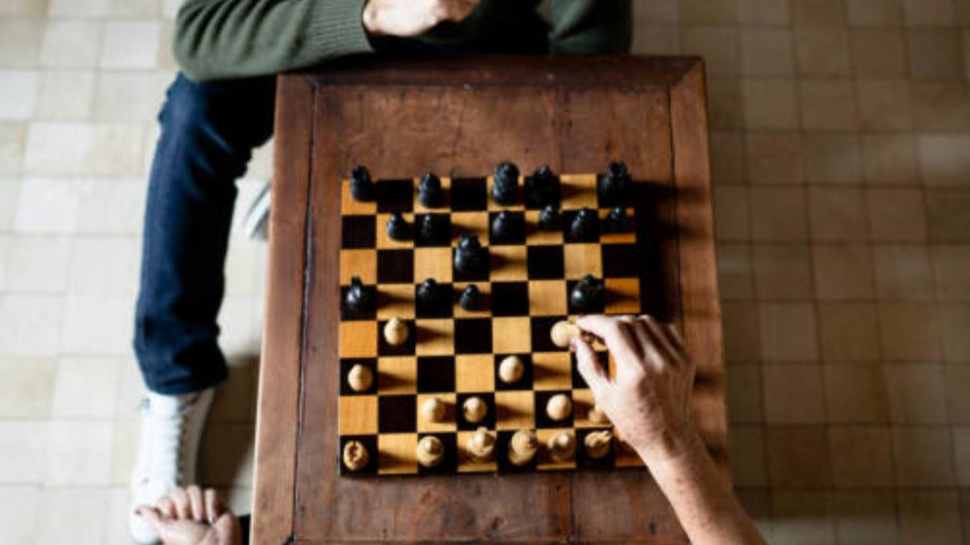Improving at chess is not just about talent—it's about consistent effort and the right habits. Many beginners wonder why some players progress rapidly while others remain stuck at the same rating for months or even years.
In this article, we'll uncover the top five habits of players who quickly become better at chess, and how enrolling in the right chess courses for beginners—like those offered by Metal Eagle Chess—can help build these habits from day one.
Habit 1 – Consistent Practice Over Occasional Intensity
One of the biggest mistakes beginners make is trying to cram all their learning into one or two long sessions per week. Successful players build small, consistent study routines.
What This Looks Like:
30–60 minutes of chess study daily
Split time between playing, reviewing, and training
Using apps or structured courses for accountability
Enrolling in beginner-friendly platforms like Metal Eagle Chess helps form these habits with guided lesson plans.
Habit 2 – Reviewing Every Game You Play
Every game you play—win or lose—is a learning opportunity. Rapidly improving players always review their games.
Why Game Review Matters:
Understand what went wrong or right
Spot recurring tactical or positional mistakes
Recognize patterns and missed opportunities
Metal Eagle Chess courses include game analysis sessions where coaches review your games and explain what could’ve been done better.
Habit 3 – Active Learning, Not Passive Watching
It’s tempting to watch grandmaster games or YouTube tutorials, but active learning means engaging with the material: solving puzzles, pausing videos to predict moves, and taking notes.
Ways to Stay Active While Learning:
Solve tactical puzzles with a timer
Predict moves in a master game and compare
Take written notes on strategy lessons
Most chess courses for beginners on Metal Eagle Chess emphasize active participation—ensuring real engagement rather than passive viewing.
Habit 4 – Mastering the Fundamentals First
Players who improve fast don’t rush into advanced tactics or rare openings. Instead, they master the core principles that govern every game.
Key Fundamentals to Focus On:
Control the center
Develop pieces before attacking
King safety and castling early
Recognizing basic tactical motifs (forks, pins, skewers)
Courses designed for beginners—like those on Metal Eagle Chess—are structured around these timeless principles, building a solid foundation.
Habit 5 – Seeking Feedback and Mentorship
Players who rise quickly often learn under the guidance of a coach or mentor. Feedback shortens the learning curve by identifying weaknesses early.
How Coaching Helps:
Personalized feedback tailored to your games
Clear goals and a structured improvement plan
Encouragement and accountability
Metal Eagle Chess provides access to experienced coaches who work closely with students to track their growth and adjust lessons accordingly.
How to Build These Habits Yourself
If you're just starting your journey to become better at chess, follow this weekly structure to build momentum:
Day Focus Duration
Monday 1 Game + Review 1 hour
Tuesday Tactical Puzzles + Basic Endgames 45 mins
Wednesday Video Lesson (Strategy) + Notes 1 hour
Thursday Play 2 Rapid Games 1 hour
Friday Review Games with Coach (if possible) 1 hour
Saturday Opening Training + Puzzle Mix 1 hour
Sunday Rest or Light Puzzle Practice 30 mins
Final Thoughts
The path to rapid chess improvement is paved with the right habits—not shortcuts. Players who consistently become better at chess do so by showing up daily, learning actively, mastering the basics, and seeking guidance.If you're serious about improving, consider enrolling in structured chess courses for beginners like those at Metal Eagle Chess, where every lesson is designed to develop these exact habits.
With the right mindset and resources, your chess rating will follow.



Share the News